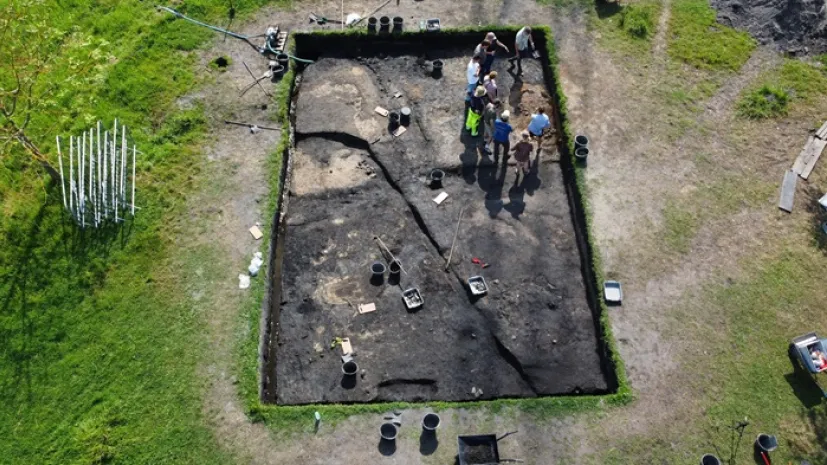
Archaeologists uncover unknown hut structures and possible early medieval port in Poland
Archaeologists in the Polish town of Wolin have discovered the remains of four huts of previously unknown construction, hundreds of everyday artefacts and possible traces of an early medieval port, findings that suggest the history of the town may be more complex than previously assumed.
-

Polish archaeologists discover 4,000-year-old Kerma grave in Sudan’s Bayuda desert
Polish scientists have uncovered a man’s grave dating back approximately 4,000 years in Sudan’s Bayuda Desert, offering new insights into burial rituals and the natural environment of the region.
-
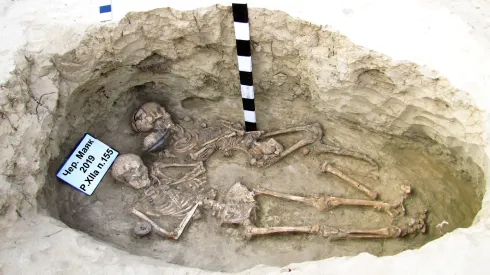
Toxic pigment found in 2,000-year-old women's graves
Archaeologists have discovered lumps of intensely red cinnabar in the graves of women buried 2,000 years ago at the Chervony Mayak cemetery in southern Ukraine, suggesting that Late Scythian communities may have used the toxic pigment to slow decomposition or neutralize microbes.
-

Scientists to reconstruct faces of 1410 Battle of Grunwald fighters
Researchers say that the faces of fighters from the 1410 Battle of Grunwald could be reconstructed in just one year with the help of modern genetic and forensic techniques.
-

Medieval farming boosted bio-diversity in Germany, study finds
Agricultural reforms introduced in early medieval Europe sharply increased biodiversity in parts of Germany and pushed species richness to levels higher than before human settlement, according to a study published in PNAS. The findings challenge the assumption that agriculture has historically harmed ecosystems, co-author Professor Adam Izdebski said.
-
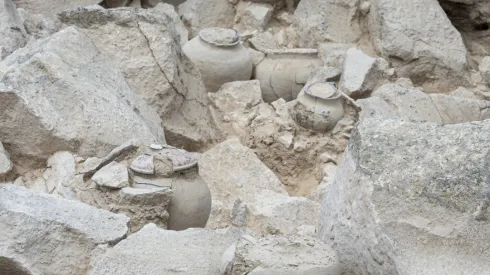
Armenian-Polish team discovers stone slab with carved human facial features and vast burial ground
An Armenian-Polish archaeological expedition working at the Argishtikhinili site in Armenia has discovered a stone slab carved with human facial features, described by researchers as a “stone idol,” and a vast urn cemetery containing twelve burials.
-
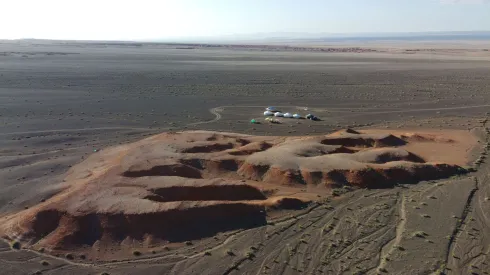
Ancient lakes sustained human life in today’s Gobi Desert, Polish scientists find
Over 8,000 years ago, vast lake districts dotted the area now known as the Gobi Desert — and human life thrived around them.
-
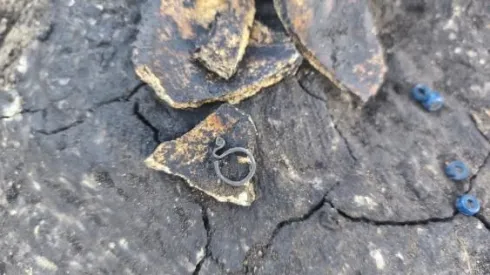
Archaeologists unearth 10th century cemetery during gas pipeline construction
Archaeologists have uncovered a 10th-century cemetery containing the remains of 24 people during gas pipeline construction in Borkowo, Kuyavian-Pomeranian Voivodeship. Researchers believe the burials may belong to the garrison and residents of a nearby early medieval stronghold.
-
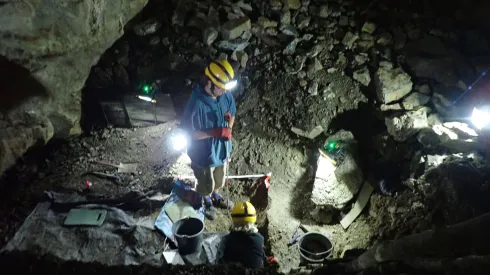
Polish archaeologists uncover traces of 15,000-year-old hunters in Tatra mountains
About 15,000 years ago, hunters from the Magdalenian culture—best known from prehistoric sites in Spain and France—ventured into the Tatra Mountains. Carrying carefully prepared stone blades and tools, they hunted local animals and left behind traces of their presence in what is now the Huczawa Cave (Hučivá diera) in the Belianske Tatras, Slovakia.
-
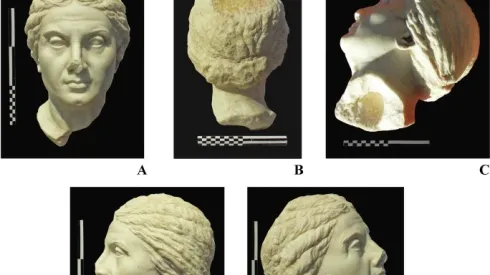
Scientists from Poland and Spain identify Roman woman in ancient marble sculpture
An ancient marble sculpture depicting a woman’s head has been identified as a portrait of Laodice, a Roman woman who lived in the first centuries CE, scientists from Poland and Spain have determined.












